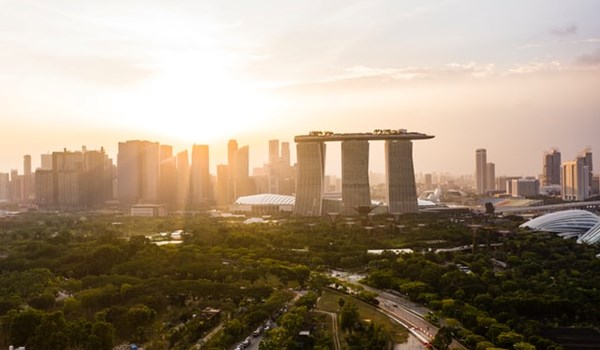Jurisdictions
Regions
Industry Sectors
19/04/22
SINGAPORE: SPACs still draw investor interest despite ‘challenging’ environment, says exchange executive.

As published on scmp.com, Tuesday 19 April, 2022.
Investors still have an appetite for special purpose acquisition companies (SPACs) listed in Singapore despite a “more challenging” environment for the investment vehicles this year, according to the head of the Singapore Exchange’s regulatory arm.
Singapore and Hong Kong both introduced new rules last year to allow the so-called blank cheque companies to go public on their bourses amid a fervour for the listings among investors and sponsors that saw more than US$162 billion raised by the vehicles globally in 2021.
However, the uptake on both exchanges has been somewhat muted this year as fundraising globally has slipped to less atmospheric levels. There have been only three SPAC IPOs in Singapore – the biggest being Temasek Holdings-backed Vertex Technology Acquisition Corp – and one Hong Kong-listed SPAC, Aquila Acquisition, to debut since the beginning of the year
“For us, it’s never been about a numbers game. We always knew that we were not going to be a SPAC market in the same way the [United] States was going to be a SPAC market,” Tan Boon Gin, the CEO of Singapore Exchange Regulation, told the Post.
“The reason why we came out with the SPAC framework was to solve a unique problem in the Singapore ecosystem, which is that of valuations, especially for our growth companies,” he added. “We believe having the SPAC framework in place will actually go some way towards bridging the gap in valuations that we see today.”
SPACs are shell companies created to raise financial war chests and buy assets within a limited period of time, usually 18 months to 24 months.
The Singapore Exchange declined to comment on its pipeline for additional SPAC listings.
A handful of blank cheque companies are understood to be considering listings in Singapore, but have not filed publicly yet.
An additional 10 SPACs have filed to go public in Hong Kong, including companies backed by former Chinese Olympic gymnast Li Ning, New World Development chief executive Adrian Cheng Chi-kong and former Hong Kong Monetary Authority Chairman Norman Chan Tak-lam.
Hong Kong and Singapore both moved last year to adopt new rules for SPACs as Asian investors clamoured to get in on the action, which saw more than US$245 billion raised by the blank cheque companies in 2020 and in 2021, with the vast majority filing for listings in the US.
Before the bourses introduced their new rules, several local investors in Hong Kong moved to list their own SPACs in the US, such as Hong Kong billionaire Richard Li Tzar-kai and Cheng, the third-generation scion of one of Hong Kong’s wealthiest families.
Grab, Singapore’s most valuable tech unicorn, also agreed to merge with a SPAC and list in the US last year in a deal that valued it at US$39.6 billion.
In allowing blank cheque companies to list, Singapore and Hong Kong adopted stricter listing requirements than their US counterparts, in part to better protect retail investors.
For example, the Singapore Exchange reviews the track record and reputation of a blank cheque company’s sponsor and its management team in assessing the suitability of a SPAC for listing.
However, interest in SPACs among investors globally has cooled in recent months, with a half-dozen mergers falling apart this year and more than 600 companies still seeking deals.
SPACs have only raised about US$10 billion globally this year, according to SPAC Analytics, a research firm focused on the investment vehicles.
Tan, the Singapore Exchange Regulation CEO, said he hopes a successful series of de-SPAC mergers can help fuel a mass of growth companies in Singapore and help improve valuations.
“Perhaps at that point in time, the market will be mature enough for these IPOs to price properly.” Tan said. “That could then become the dominant way of listing growth companies, rather than through SPACs.”



